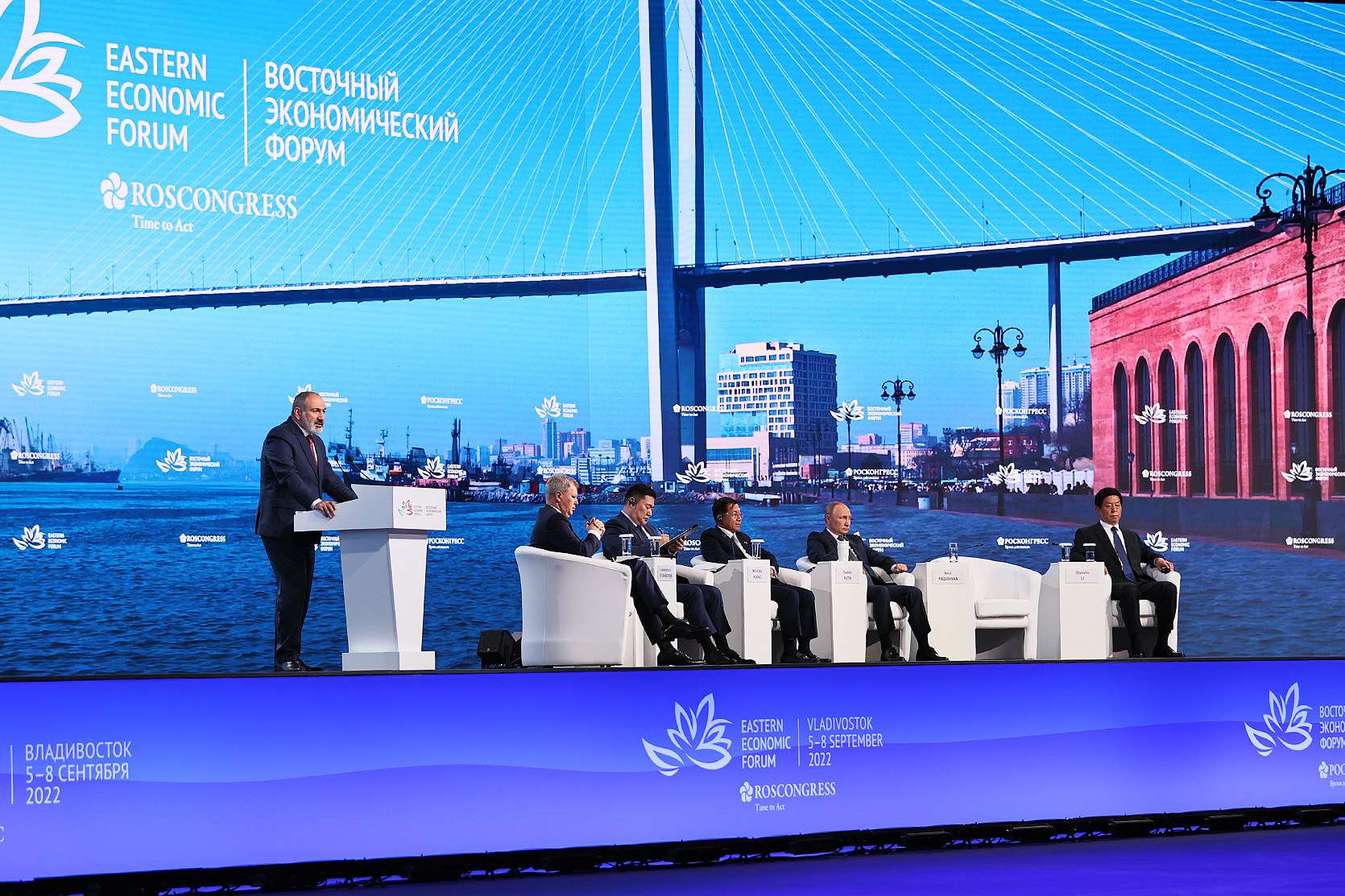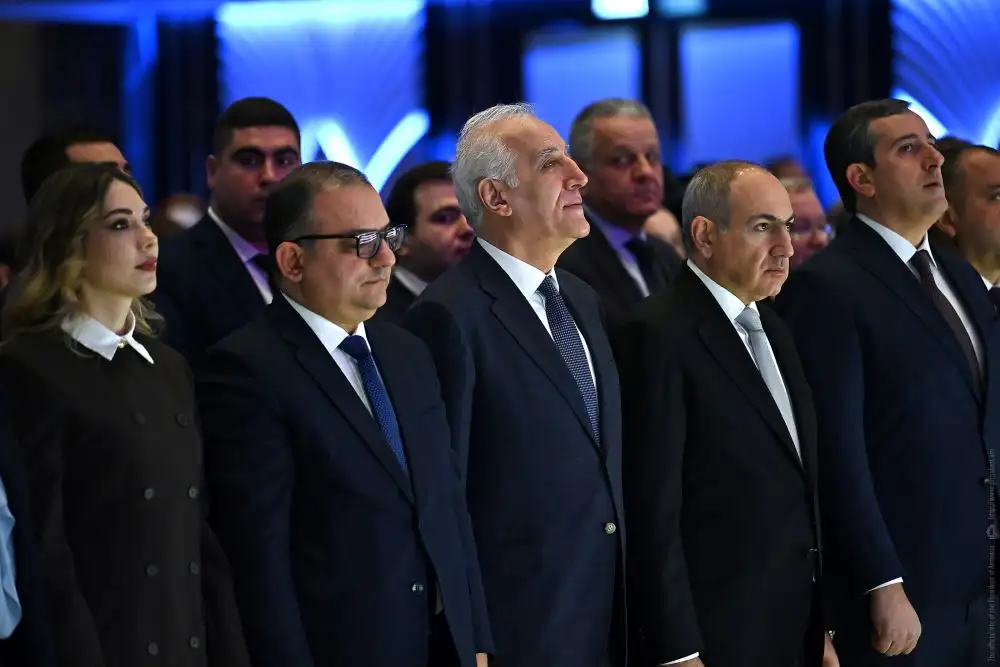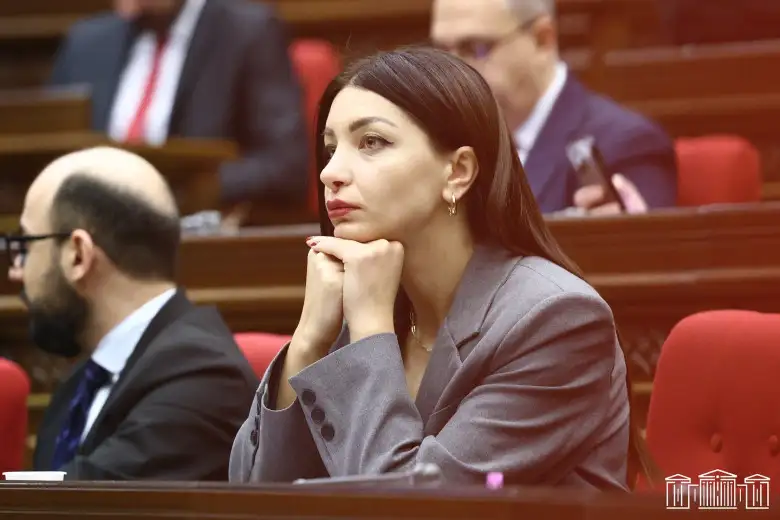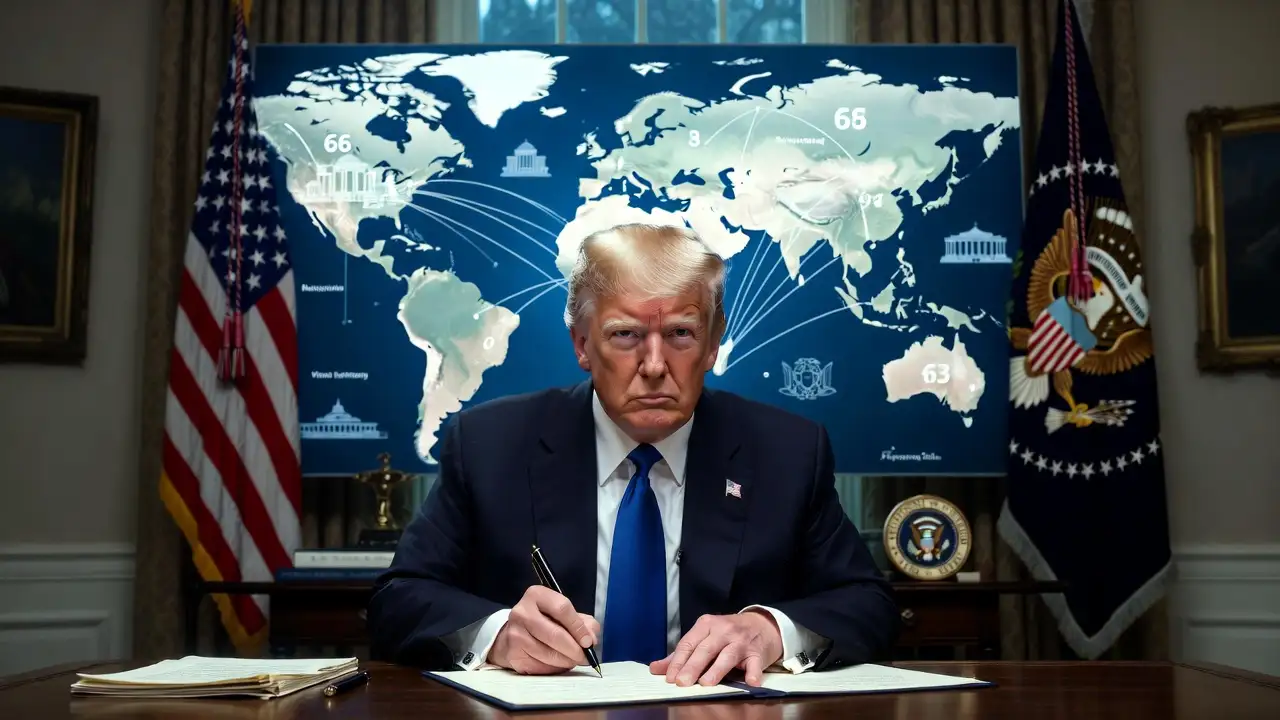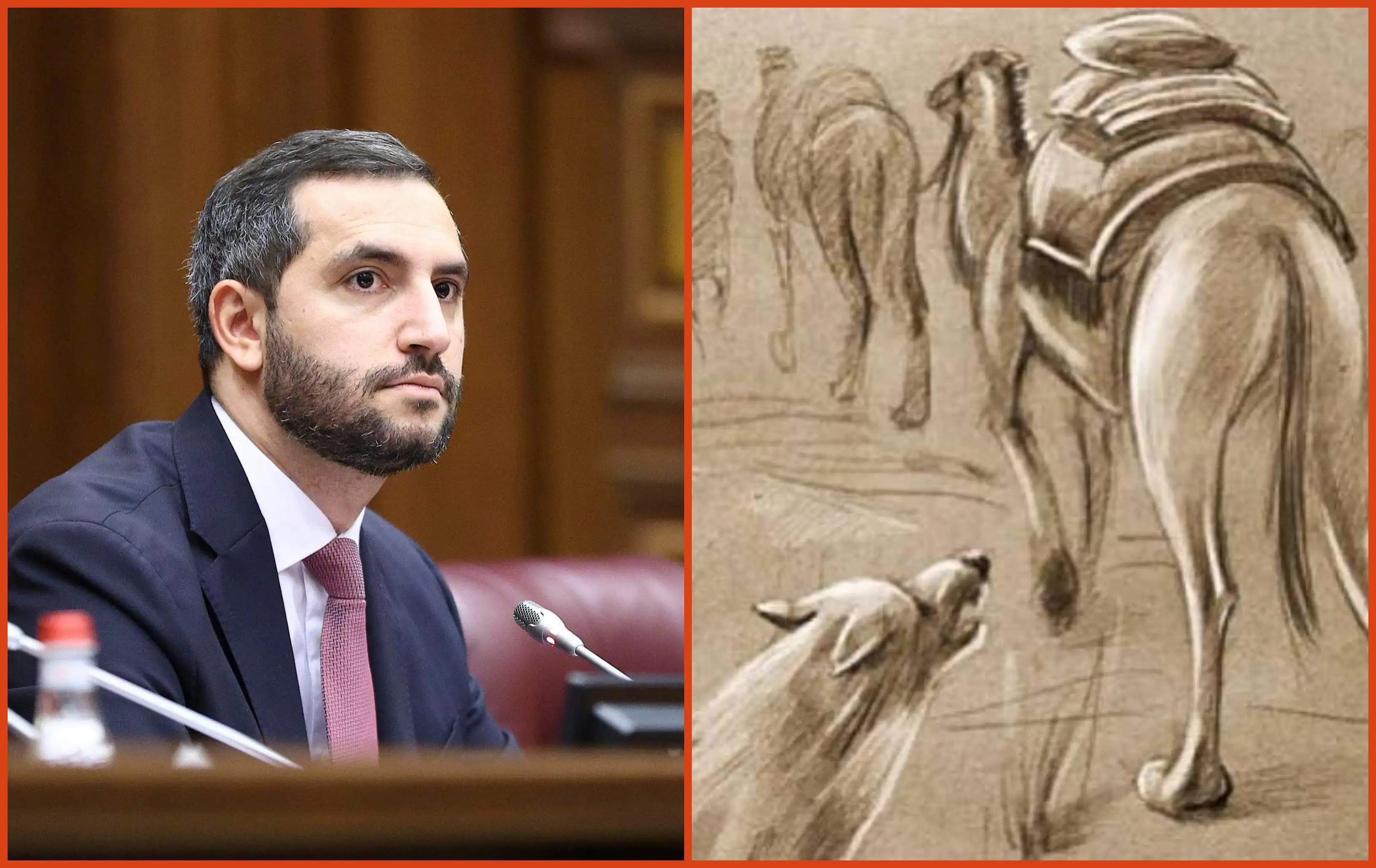After his speech at the plenary session of the 7th Eastern Economic Forum on the theme "On the road to a multipolar world," the RA Prime Minister answered the questions of journalist Ilya Doronov, who is conducting the forum.
Question: Mr. Prime Minister, Armenia is the country that knows what the energy crisis and trade crisis are. You survived all that as a country in the 1990s. But now you have an intense strengthening of relations with Russia. In the last few weeks, you have communicated with Vladimir Vladimiri Putin several times; you came to Vladivostok to participate in the forum. Are you not afraid that you will fall under sanctions?
Prime Minister Nikol Pashinyan - I think that fear is not a very good stance; we need to work, as I said, to manage the challenges that appear, to notice the opportunities that open up, and put great effort so that new opportunities open up. Of course, we are also concerned about commercial energy security. It must be said that we also have high inflation, which directly affects our country's social condition, but, in general, the situation is manageable. There is a problem, but we do not have a crisis.
I want to emphasize that it is also thanks to the support of the Russian Federation. Especially in the first half of the year, everyone had significant concerns. We communicated intensively, not only within the EAEU framework but also in a bilateral format, and raised issues. I must say that I am impressed with the promptness with which both Vladimir Vladimiri and Mikhail Vladimiri respond to the questions and requests submitted by the Armenian side. This is an essential partnership.
I am not sure that all residents of Armenia know these nuances, even though we talk about it all the time, but it is essential. We were talking about moving wheat in different directions. Still, I must emphasize that thanks to the decisions that the Russian President, and the government, took, we managed to manage these challenges together. It would be tough for us to do it alone."
Then, in response to the journalist's question, Nikol Pashinyan referred to the flow of Russian citizens to Armenia. "Many people just came to Armenia because people need to get salaries, because they are actually in Russia, working with the West. Due to problems with financial transfers, they have now moved to Armenia.
In my speech, I tried to present our point of view. I hope it is perceived in Russia as a displacement in the EAEU because the EAEU was created for that very reason, to allow free movement of goods, services, labor, and capital, which is what we see in reality.
Vladimir Vladimiri said he warned about future problems for business people working in the West. Still, I think that the Eurasian Economic Union was created just for such situations so that the economies of our countries are more flexible. We should say that we already saw high economic growth in January-February, but problems and concerns appeared in March.
Of course, the people who arrived in Armenia did their best to help, and we are delighted. We are in constant contact with our Russian partners because there are also areas that can be developed together. Now a good dynamic of Russian regions working with Armenian partners has emerged.
You asked about possible sanctions; I would like to draw your attention to the following issue. If Armenia comes under sanctions theoretically, it will not benefit Russia. What do we offer? We propose to cooperate competently, use the opportunities that have now opened, and notice the challenges that are not only related to Russia but also the EAEU; our cooperation to manage and somehow neutralize these challenges. So, we are very happy for the Russian citizens who arrived in Armenia.
When we discussed this in the first half of this year, I drew the attention of our Russian partners to the following. If they move to Armenia, they stay in the Eurasian Economic Union, and the chance that they will return to Russia from Armenia is several times higher than whether they work in France or the USA. Previously, many Russian tourists came to Armenia on vacation; now, they come to Russia on holiday.
We have a big problem with real estate because real estate prices are rising in Armenia, and rental housing prices are also rising. It's a problem, but it creates new opportunities. If I'm not mistaken, we already have a 13 percent growth in the construction sector this year. Russian business is also interested in investing in this sector.
In the context of possible economic problems, it is essential, despite cooperating very closely with the Russian Federation, international rating agencies reaffirm the high rating of the Republic of Armenia. I want to draw the attention of Russian business people that Armenia is making significant progress in ranking among states with a free economy. In this context, we have new ambitions and hope to be among the top ten in the global order.
We have excellent opportunities for the economic cooperation between Armenia and Russia to be at an even higher level, even though Russia has always been Armenia's number one trade and financial partner for the past 30 years. It is essential that now there is an opportunity to change the quality of economic cooperation as well."




